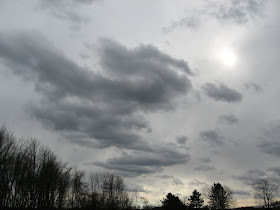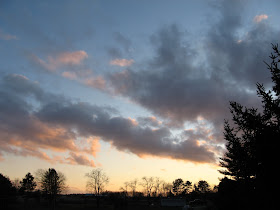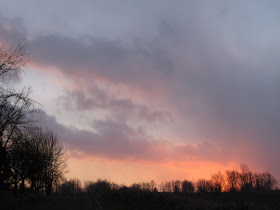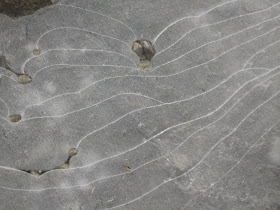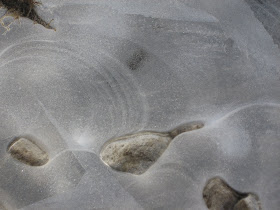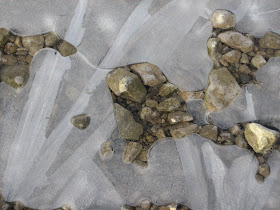
31 January 2012
Hardscrabble.
Wayne Scott watched his son ascend to a place as a successful Nashville musician and smiled when Scott did well enough to buy him a Gibson Hummingbird guitar to replace the one the boy, his brother and his friend drowned in a swamp when Darrell was 5 and wanted to see whether guitars would float. (They do, sort of, but they emerge considerably worse for wear.)
He smiled some more when Darrell founded his own label and signed his dad as the debut artist: Wayne Scott’s first album, This Weary Way, came out in 2005 on Full Light Records. It was full of old-school country music — the kind Wayne loved the most — and a writer from the Chicago Sun-Times called it “the soundtrack to the hardscrabble life of a real country man.”
And no one argued.
The son’s own albums have been stylistically divergent, always grounded in American roots music forms but never devoted singly to Wayne Scott’s kind of country. But a few years ago, Darrell gathered some of country music’s greatest session players, including Country Music Hall of Famer Charlie McCoy and masters such as Pig Robbins, Dennis Crouch, Kenny Malone and Lloyd Green, and they recorded 16 of his most country-inflected songs. Wayne came to the studio and sang some lead vocals on a song called “The Country Boy,” one he wrote 36 years ago with his teenaged boy.
“You’ll never know the loneliness and sorrow he goes through / The country boy has been there, that’s what makes him sing the blues,” he sings, evoking pains, conflicts and hard-won knowledge. The stuff Wayne lived. The stuff Darrell grew up on.
Read the rest at The Tennessean.
Darrell Scott's The Long Ride Home, is released today.
Here's my favorite poem of his ...
He smiled some more when Darrell founded his own label and signed his dad as the debut artist: Wayne Scott’s first album, This Weary Way, came out in 2005 on Full Light Records. It was full of old-school country music — the kind Wayne loved the most — and a writer from the Chicago Sun-Times called it “the soundtrack to the hardscrabble life of a real country man.”
And no one argued.
The son’s own albums have been stylistically divergent, always grounded in American roots music forms but never devoted singly to Wayne Scott’s kind of country. But a few years ago, Darrell gathered some of country music’s greatest session players, including Country Music Hall of Famer Charlie McCoy and masters such as Pig Robbins, Dennis Crouch, Kenny Malone and Lloyd Green, and they recorded 16 of his most country-inflected songs. Wayne came to the studio and sang some lead vocals on a song called “The Country Boy,” one he wrote 36 years ago with his teenaged boy.
“You’ll never know the loneliness and sorrow he goes through / The country boy has been there, that’s what makes him sing the blues,” he sings, evoking pains, conflicts and hard-won knowledge. The stuff Wayne lived. The stuff Darrell grew up on.
Read the rest at The Tennessean.
Darrell Scott's The Long Ride Home, is released today.
Here's my favorite poem of his ...
Happy Birthday, Manzanera.
Roxy Music guitarist Phil Manzanera was born on this date in 1951.
Ferry's voice is amazing, but the first thing that ever attracted me to this band was Manzanera's guitar.
Roxy Music, "My Only Love"
Thanks Kurt.
Ferry's voice is amazing, but the first thing that ever attracted me to this band was Manzanera's guitar.
Roxy Music, "My Only Love"
Thanks Kurt.
Lost.
Bouguereau, The Lost Pleiad, 1884

The Pleiades, waxing moon and Jupiter visible tonight after sundown.
Legend of the Lost Pleiad
Most people see 6, not 7, Pleiades stars in a dark country sky.
However, the story about the lost 7th Pleiad harbors a universal theme. The astronomer Robert Burnham Jr. finds the lost Pleaid myth prevalent in the star lore of European, African, Asian, Indonesian, Native American and Aboriginal Australian populations.
Moreover, Burnham suggests the “Lost Pleiad” may have basis in fact. After all, modern astronomy has found that the 7th brightest Pleiades star – Pleione – is a complicated and hard-to-understand “shell star” that goes through numerous permutations. These changes cause this star to vary in brightness.
Plus people with exceptional eyesight have been known to see many more stars in the Pleiades cluster. Claims go up as high as 20 stars. Miss Agnes Clerke reports that Maestlin, the tutor of Kepler, mapped out 11 Pleiades stars before the invention of the telescope.
However, you must be willing to spend time under a dark, moonless sky to see more than 6 or 7 Pleaides stars. Stephen O’Meara, a dark-sky connoisseur, claims that eyes dark-adapted for 30 minutes are 6 times more sensitive to light than eyes dark-adapted for 15 minutes. The surest way to see additional Pleiades stars is to look at this cluster through binoculars or low power in a telescope.
Read the rest at EarthSky.
The Lost Pleiad
Not in the sky,
Where it was seen
So long in eminence of light serene,—
Nor on the white tops of the glistering wave,
Nor down in mansions of the hidden deep,
Though beautiful in green
And crystal, its great caves of mystery,—
Shall the bright watcher have
Her place, and, as of old, high station keep!
Gone! gone!
Oh! nevermore, to cheer
The mariner, who holds his course alone
On the Atlantic, through the weary night,
When the stars turn to watchers, and do sleep,
Shall it again appear,
With the sweet-loving certainty of light,
Down shining on the shut eyes of the deep!
The upward-looking shepherd on the hills
Of Chaldea, night-returning with his flocks,
He wonders why his beauty doth not blaze,
Gladding his gaze,—
And, from his dreary watch along the rocks,
Guiding him homeward o’er the perilous ways!
How stands he waiting still, in a sad maze,
Much wondering, while the drowsy silence fills
The sorrowful vault!—how lingers, in the hope that night
May yet renew the expected and sweet light,
So natural to his sight!
And lone,
Where, at the first, in smiling love she shone,
Brood the once happy circle of bright stars:
How should they dream, until her fate was known,
That they were ever confiscate to death?
That dark oblivion the pure beauty mars,
And, like the earth, its common bloom and breath,
That they should fall from high;
Their lights grow blasted by a touch, and die,
All their concerted springs of harmony
Snapt rudely, and the generous music gone!
Ah! still the strain
Of wailing sweetness fills the saddening sky;
The sister stars, lamenting in their pain
That one of the selectest ones must die,—
Must vanish, when most lovely, from the rest!
Alas! ’t is ever thus the destiny.
Even Rapture’s song hath evermore a tone
Of wailing, as for bliss too quickly gone.
The hope most precious is the soonest lost,
The flower most sweet is first to feel the frost.
Are not all short-lived things the loveliest?
And, like the pale star, shooting down the sky,
Look they not ever brightest, as they fly
From the lone sphere they blest!
- William Gilmore Simms

The Pleiades, waxing moon and Jupiter visible tonight after sundown.
Legend of the Lost Pleiad
Most people see 6, not 7, Pleiades stars in a dark country sky.
However, the story about the lost 7th Pleiad harbors a universal theme. The astronomer Robert Burnham Jr. finds the lost Pleaid myth prevalent in the star lore of European, African, Asian, Indonesian, Native American and Aboriginal Australian populations.
Moreover, Burnham suggests the “Lost Pleiad” may have basis in fact. After all, modern astronomy has found that the 7th brightest Pleiades star – Pleione – is a complicated and hard-to-understand “shell star” that goes through numerous permutations. These changes cause this star to vary in brightness.
Plus people with exceptional eyesight have been known to see many more stars in the Pleiades cluster. Claims go up as high as 20 stars. Miss Agnes Clerke reports that Maestlin, the tutor of Kepler, mapped out 11 Pleiades stars before the invention of the telescope.
However, you must be willing to spend time under a dark, moonless sky to see more than 6 or 7 Pleaides stars. Stephen O’Meara, a dark-sky connoisseur, claims that eyes dark-adapted for 30 minutes are 6 times more sensitive to light than eyes dark-adapted for 15 minutes. The surest way to see additional Pleiades stars is to look at this cluster through binoculars or low power in a telescope.
Read the rest at EarthSky.
The Lost Pleiad
Not in the sky,
Where it was seen
So long in eminence of light serene,—
Nor on the white tops of the glistering wave,
Nor down in mansions of the hidden deep,
Though beautiful in green
And crystal, its great caves of mystery,—
Shall the bright watcher have
Her place, and, as of old, high station keep!
Gone! gone!
Oh! nevermore, to cheer
The mariner, who holds his course alone
On the Atlantic, through the weary night,
When the stars turn to watchers, and do sleep,
Shall it again appear,
With the sweet-loving certainty of light,
Down shining on the shut eyes of the deep!
The upward-looking shepherd on the hills
Of Chaldea, night-returning with his flocks,
He wonders why his beauty doth not blaze,
Gladding his gaze,—
And, from his dreary watch along the rocks,
Guiding him homeward o’er the perilous ways!
How stands he waiting still, in a sad maze,
Much wondering, while the drowsy silence fills
The sorrowful vault!—how lingers, in the hope that night
May yet renew the expected and sweet light,
So natural to his sight!
And lone,
Where, at the first, in smiling love she shone,
Brood the once happy circle of bright stars:
How should they dream, until her fate was known,
That they were ever confiscate to death?
That dark oblivion the pure beauty mars,
And, like the earth, its common bloom and breath,
That they should fall from high;
Their lights grow blasted by a touch, and die,
All their concerted springs of harmony
Snapt rudely, and the generous music gone!
Ah! still the strain
Of wailing sweetness fills the saddening sky;
The sister stars, lamenting in their pain
That one of the selectest ones must die,—
Must vanish, when most lovely, from the rest!
Alas! ’t is ever thus the destiny.
Even Rapture’s song hath evermore a tone
Of wailing, as for bliss too quickly gone.
The hope most precious is the soonest lost,
The flower most sweet is first to feel the frost.
Are not all short-lived things the loveliest?
And, like the pale star, shooting down the sky,
Look they not ever brightest, as they fly
From the lone sphere they blest!
- William Gilmore Simms
30 January 2012
Exciting.

It is fantastic. *If* you let yourself forget about the need to have your house “in order”. What is order anyway? A temporary feeling that all is in control. Fleeting. Really everything is in a state of constant flux. Except we don’t really contemplate that too much because it forces us to acknowledge that we too are always changing and on that road to “the end”. That place that we don’t really know much about and don’t want to contemplate.
Tangent #2 (or is this #3?)
I watched the film “Microcosmos” with my son yesterday and it made me think about all of the worlds, microscopic, underground, in space, down the street, in every house, underfoot, in the corner of my room, in my body, under the sea, in Manhattan, that are all occurring all the time without my being aware of it. This is really a big thought to take in. Perhaps too big for a sleepy monday morning. But anyway, I got very excited about that (I can get very excited about a lot of things, have you noticed that?)
The world is an exciting place. There is always something going on that you want to be looking at and thinking about.
Read the rest at kerismith.com
Mind.
Wyeth, Turkey Pond, 1944

Beannacht (Blessing)
On the day when
the weight deadens
on your shoulders
and you stumble,
may the clay dance
to balance you.
And when your eyes
freeze behind
the grey window
and the ghost of loss
gets in to you,
may a flock of colours,
indigo, red, green,
and azure blue
come to awaken in you
a meadow of delight.
When the canvas frays
in the currach of thought
and a stain of ocean
blackens beneath you,
may there come across the waters
a path of yellow moonlight
to bring you safely home.
May the nourishment of the earth be yours,
may the clarity of light be yours,
may the fluency of the ocean be yours,
may the protection of the ancestors be yours.
And so may a slow
wind work these words
of love around you,
an invisible cloak
to mind your life.
- John O'Donohue

Beannacht (Blessing)
On the day when
the weight deadens
on your shoulders
and you stumble,
may the clay dance
to balance you.
And when your eyes
freeze behind
the grey window
and the ghost of loss
gets in to you,
may a flock of colours,
indigo, red, green,
and azure blue
come to awaken in you
a meadow of delight.
When the canvas frays
in the currach of thought
and a stain of ocean
blackens beneath you,
may there come across the waters
a path of yellow moonlight
to bring you safely home.
May the nourishment of the earth be yours,
may the clarity of light be yours,
may the fluency of the ocean be yours,
may the protection of the ancestors be yours.
And so may a slow
wind work these words
of love around you,
an invisible cloak
to mind your life.
- John O'Donohue
29 January 2012
Howls.
Tchaikovsky, Violin Concerto in D major, Op. 35
Fiddler Janine Jansen performs the Canzonetta: Andante (in G minor)
Mystery.

Krista Tippett interviews author and poet John O'Donohue on "The Inner Landscape of Beauty" ...
TIPPETT: You know, I've been looking back at the thought of the theologian Reinhold Niebuhr, and he has this statement at the beginning of his book The Nature and Destiny of Man, you know, the first line, "Man is his own most vexing problem." Or I think of a great kind of pivotal work in this culture of modern psychology, M. Scott Peck's book, which begins, "Life is difficult." And then I read this line, which begins your book, Anam Ċara, which is also a different way of kind of analyzing the human condition: "It's strange to be here. The mystery never leaves you." Talk to me about that as a way of thinking about what it means to be human and how you come to that and what you mean when you write those words.
O'DONOHUE: OK. I mean, when you think about language and you think about consciousness, it's just incredible to think that we can make any sounds that can reach over across to each other at all. Because I mean, I think we're — I think the beauty of being human is that we're incredibly, intimately near each other. We know about each other, but yet we do not know or never can know what it's like inside another person. And it's amazing, you know, here am I sitting in front of you now, looking at your face, you're looking at mine and yet neither of us have ever seen our own faces. And that in some way, thought is the face that we put on the meaning that we feel and that we struggle with and that the world is always larger and more intense and stranger than our best thought will ever reach. And that's the mystery of poetry, you know, is poetry tries to draw alongside the mystery as it's emerging and somehow bring it into presence and into birth.
Read the rest at On Being.
Here is the conversation ...
Thank you very much, Veerle.
Live.
Alive.

Music
I
A vision o'er my soul hath swept,
A dream of light; 'twas music part,
And part it was my happy heart
Made music as I slept.
I cannot paint that glorious dream,
Words are such cold and lifeless things;
Of all the life and light it brings,
I can but give a gleam.
I wandered with a calm surprise
Half on the earth, and half in air,
And sometimes I went gliding where
The ocean meets the skies.
O, it was sweet to roam away!
No cumbrous limbs to clog the motion,
As through the fields, the air, the ocean,
I could not choose but stray.
Asleep in body, but awake
In soul to all things bright and dear,
My fancies wandered far and near,
Nor would my slumbers break.
There seemed a ceaseless harmony,
Which sounding every where I went
Came ringing through the firmament,
Or from the pathless sea;
Or sometimes from the lonely woods,
Or from the high o'er-watching stars,
For silence now had burst her bars
Through Nature's solitudes.
And then I knew that music is
The native tongue of none but Gladness,
That Silence weds herself to Sadness,
Who hath no harmonies.
And still I roamed with lightsome heart,
And from the tones so intermingled,
Swift-gathering Fancy every singled
One voice from every part.
And first I heard the mighty ocean
Go thundering to his empire bounds;
A voice of many blended sounds
In sad and wild commotion.
The mad waves roared in spray-fire flame,
The white storm-bird flew screaming by;
But sweetly from the listening sky
The softened echoes came.
All mingled in one giant tone,
Till stunned by the loud ocean band,
I turned away--'twas sad to stand
On that dark shore alone.
But to the stars my face I turned,
And strange as it may seem, methought
My ears a slow faint anthem caught
From the calm orbs that burned
Amid the dark blue firmament:
There hung the seven-stringed lyre on high,
But a reckless comet came rushing by,
And swept it as he went;
And there came a troubled music out,
And yet it jarred not on the ear,
For the circling choir rang sweet and clear
As their first morning shout.
I wandered still and heard it come;
It fell with the meek starlight down,
And not a thunder voice or frown
Passed o'er the glittering dome:
Till by the border of a wood,
While silver moonlight edged the trees
Where a thousand birds rocked by the breeze
Were sleeping, soon I stood.
A soft and swelling music crept
As from some mighty wind-harp strings,
Too soft to wake the myriad things
That mid the branches slept.
The winds were sifting through the pines;
'Twas sweet yet sad to hear them moan:
Ah! then I felt I was alone
By Nature's holiest shrines.
And deep amid the o'er-arching trees
A low-toned waterfall was gushing;
Unseen, beneath, a stream went rushing
And mingling with the breeze.
A musing spirit o'er me passed,
And Memory took me to the day
When in the woodlands, far away,
I thus stood listening last.
II
Sudden a light flashed on my dream,
The pensive tones of night were gone,
And I was by a dewy lawn
Lit by the sun's first beam.
A wandering voice went twittering by,
It seemed a meadow-bird of spring;
It came, on gay and glancing wing
Fast leaping through the sky.
It bore me back to childhood's hours,
And I was in the fields again,
And by the stream and in the glen
Hunting the wild wood flowers.
It did not seem so very strange,
And yet I felt myself a child,
As gay, as thoughtless and as wild,
As when I knew no change.
And then came tinkling on my ear,
As if to strengthen all this spell,
The grazing herd's low meadow-bell:
O, it was sweet to hear!
And I was young--my heart was light;
The stream of years was backward rolled;
How could I feel that I'd grown old,
When Memory was so bright?
I wandered, drinking in the sound:
There is no music like to this
That floats within a dream of bliss,
When night is all around.
Through all my night there was a morn,
A little fairy morning beaming,
Like sunlight through a forest streaming
On one who walks forlorn.
And all along, where'er I wandered,
The sweet mysterious music played;
'Twas part around me, partly made
Within me, as I pondered.
And part of it a mingled feeling
Made up of joy and harmony,
A presence that brought light to me,
A hidden self revealing.
The sea, the stars, the winds, the trees,
The stream, the waterfall, the dell,
The bird, the flowers, the meadow-bell--
I felt that all of these
Were but the symbols of a soul
Alive with hope or memory;
The mind's immortal harmony
That through its chambers stole.
And to the spirit's listening ear,
Whilst slept the limbs and senses all,
Made every thing seem musical;
How could I cease to hear?
And thus it may be, when this frame
Is laid asleep in death at last;
The soul no longer overcast,
To Him from whom it came,
Shall brighten upward and be free,
And roam amid the chiming spheres,
And feel within, while thus it hears,
Eternal Harmony.
We brought it with us here below--
Within, without, we feel it ever;
Why should it not, as now, forever
Through an Hereafter go!
For music, I must think, was given
To be of higher life a token,
The language by the angels spoken,
The native tongue of heaven!
- Christopher Pearse Cranch
Stoop.
Happy Birthday, Abbey.

Edward Abbey was born on this date in 1927.
According to the current doctrines of mysticoscientism, we human animals are really and actually nothing but "organic patterns of nodular energy composed of collocations of infinitesimal points oscillating on the multi-dimensional coordinates of the space-time continuum". I'll have to think about that. Sometime. Meantime, I'm going to gnaw on this sparerib, drink my Blatz beer, and contemplate the a posteriori coordinates of that young blonde over yonder, the one in the tennis skirt, tying her shoelaces.
- Cactus Ed
Skills.
As part of the NHL All Star Game weekend festivities, the Skills Competition was last night.
Teams were selected for the skills relay and Pavel was selected first overall by his team for the Skills Challenge ...
Fastest skater ...
Breakaway ...
Accuracy Shooting ...
Skills Relay. Don't miss Pavel's puck control at 4:01 ...
Hardest Shot ...
Shootout ...
Teams were selected for the skills relay and Pavel was selected first overall by his team for the Skills Challenge ...
Fastest skater ...
Breakaway ...
Accuracy Shooting ...
Skills Relay. Don't miss Pavel's puck control at 4:01 ...
Hardest Shot ...
Shootout ...
28 January 2012
Savall.
Jordi Savall and is ensemble, Folías de España, perform a short though sublime concert.
When I am an old man and I have come to the end of my days, should I be given the opportunity, I would like to have Jordi Savall's viol be the last music I hear.
When I am an old man and I have come to the end of my days, should I be given the opportunity, I would like to have Jordi Savall's viol be the last music I hear.
Renew.

Casey Walker interviews Jim Harrison ...
WALKER: In your own work, whether from day to day to in its general arc, what does it look like to you? Where is your curiosity?
HARRISON: Well, you can go through it to the point you see not just what is in front of you, but you can look at yourself walking away. I see more of the same work I’ve done before, I don’t change gears in quantum leaps. I do find myself reading more and more about botany and anthropology, which reminds me of Erik Erickson saying reality is mankind’s greatest illusion. We are overwhelmed by the perception of how short life is, as in the old Don Juan thing about the whining man who is always whining and whining about hoeing corn and then you hear a dog barking in the distance and the screen door slams and suddenly it’s evening. You have to be very aware of that sensation. Time is one of our great illusions too. In “The Beige Dolorosa,” there’s a man who wants to rename the birds of North America, and he’s created a calendar in which there are only three days a month, which gives him these great open spaces: three 200-hour days. Natives know this kind of thing—how to renew oneself. The interesting thing about being in a rut is that the only things you see are the sides of the rut. You don’t see out. The frogs who fell into the well now think that’s the universe. It’s the perfect metaphor for people rich or poor.
Read the rest at Wild Duck Review.
The Marx Brothers, "A Day at the Races"
The Examination Scene ... You must forgive him, he doesn't spell very well.
Lifetime.
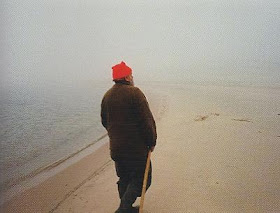
To write a poem you must first create a pen that will write all that you want to say. For better or worse, this is the work of a lifetime.
- Jim Harrison, from the Preface to After Ikkyu and Other Poems
Wakes.
Talbot, Oak Tree in Winter at Lacock Abbey, 1843

Wanderer, your footsteps are the road, and nothing more; wanderer, there is no road, the road is made by wandering. By wandering one makes the road, and upon glancing behind one sees the path that never will be trod again. Wanderer, there is no road -- Only wakes upon the sea.
- Antonio Machado

Wanderer, your footsteps are the road, and nothing more; wanderer, there is no road, the road is made by wandering. By wandering one makes the road, and upon glancing behind one sees the path that never will be trod again. Wanderer, there is no road -- Only wakes upon the sea.
- Antonio Machado
27 January 2012
Mullova.
In my wanderings through the Interditch tonight I came across this trailer for a documentary on Viktoria Mullova. In this footage she is working on some Vivaldi with Giovanni Antonini and Il Giardino Armonico.
Gould playing Bach, Horowitz with Chopin, Uchida and Mozart, ... I'm not sure it gets any better than Mullova and Vivaldi.
Gould playing Bach, Horowitz with Chopin, Uchida and Mozart, ... I'm not sure it gets any better than Mullova and Vivaldi.
New.
Logistics.
Canaletto, View Of The Grand Walk, Vauxhall Gardens, 1755
 As with the stone masons building Europe's great cathedrals, the whalers out of Nantucket, or the Rangers with Rogers in the north woods, I would have loved to be a waiter or a bartender at Vauxhall.
As with the stone masons building Europe's great cathedrals, the whalers out of Nantucket, or the Rangers with Rogers in the north woods, I would have loved to be a waiter or a bartender at Vauxhall.
John Barrell reviews David Coke and Alan Borg's Vauxhall Gardens: A history ...
The gardens provided refreshments on a scale never attempted before and perhaps rarely since, when we bear in mind that, unlike the concessions at sports grounds or festivals today, everything eaten and drunk in the gardens came from one single outlet. On some occasions, 5,000, even 7,000, were fed in an evening. The food was plain English fare, with none of your fiddly French sauces: chicken, ham, beef with custard, served cold except perhaps when unexpected numbers required the cooks to roast extra chickens: one former waiter remembered an order suddenly coming into the kitchen for “400 roast fowls”. The gardens were famed for their portion control, meat carved so paper-thin it was described as “sliced cobwebs”; the wine was neither good nor cheap. Being English, the customers did not often complain; if the fare left them unimpressed, they must still have marvelled at the sublime logistics of supplying food on this scale. Ranelagh, after all, Vauxhall’s main competitor in the eighteenth century, served only tea and coffee. An army of waiters was employed, each wearing identifying numbers as if in a football team. Except, I suppose, when 400 chickens were ordered at once, the waiters were prevented from cheating the management by being made to pay cash from their own pockets for everything they ordered from the kitchens, reimbursing themselves when the customers settled their bills.
Read the rest at The Times Literary Supplement. Thank you, Arts & Letters Daily.
More at vauxhallgardens.com.
 As with the stone masons building Europe's great cathedrals, the whalers out of Nantucket, or the Rangers with Rogers in the north woods, I would have loved to be a waiter or a bartender at Vauxhall.
As with the stone masons building Europe's great cathedrals, the whalers out of Nantucket, or the Rangers with Rogers in the north woods, I would have loved to be a waiter or a bartender at Vauxhall. John Barrell reviews David Coke and Alan Borg's Vauxhall Gardens: A history ...
The gardens provided refreshments on a scale never attempted before and perhaps rarely since, when we bear in mind that, unlike the concessions at sports grounds or festivals today, everything eaten and drunk in the gardens came from one single outlet. On some occasions, 5,000, even 7,000, were fed in an evening. The food was plain English fare, with none of your fiddly French sauces: chicken, ham, beef with custard, served cold except perhaps when unexpected numbers required the cooks to roast extra chickens: one former waiter remembered an order suddenly coming into the kitchen for “400 roast fowls”. The gardens were famed for their portion control, meat carved so paper-thin it was described as “sliced cobwebs”; the wine was neither good nor cheap. Being English, the customers did not often complain; if the fare left them unimpressed, they must still have marvelled at the sublime logistics of supplying food on this scale. Ranelagh, after all, Vauxhall’s main competitor in the eighteenth century, served only tea and coffee. An army of waiters was employed, each wearing identifying numbers as if in a football team. Except, I suppose, when 400 chickens were ordered at once, the waiters were prevented from cheating the management by being made to pay cash from their own pockets for everything they ordered from the kitchens, reimbursing themselves when the customers settled their bills.
Read the rest at The Times Literary Supplement. Thank you, Arts & Letters Daily.
More at vauxhallgardens.com.
Happy Birthday, Mozart.
Wolfgang Amadeus Mozart was born on this date in 1756.
As death (considered precisely) is the real purpose of our life, for several years I have become so closely acquainted with this true and best friend of life, that his image is not only no longer terrifying to me, but rather something very soothing and comforting! And I thank my God for affording me, in his grace, the opportunity (you understand me) of realizing that he is the key to our real happiness -- I never lie down in bed without that (young as I am) I may not live to see the next day -- and yet no one, especially among those who know me, can say that in daily life I am stubborn or sad -- and for this happiness I give thanks to my Creator every day and wish every man the same, from the bottom of my heart ...
- Wolfgang Amadeus Mozart, from H.C. Robbins Landon's 1791: Mozart's Last Year
Here, Peter Ustinov narrates The Mozart Mystique ...
As death (considered precisely) is the real purpose of our life, for several years I have become so closely acquainted with this true and best friend of life, that his image is not only no longer terrifying to me, but rather something very soothing and comforting! And I thank my God for affording me, in his grace, the opportunity (you understand me) of realizing that he is the key to our real happiness -- I never lie down in bed without that (young as I am) I may not live to see the next day -- and yet no one, especially among those who know me, can say that in daily life I am stubborn or sad -- and for this happiness I give thanks to my Creator every day and wish every man the same, from the bottom of my heart ...
- Wolfgang Amadeus Mozart, from H.C. Robbins Landon's 1791: Mozart's Last Year
Here, Peter Ustinov narrates The Mozart Mystique ...
Liberated.
On this date in 1927, the Soviet Army liberated the Nazis' biggest concentration camp at Auschwitz in south-western Poland.
From the 2005 film, Holocaust: A Music Memorial Film from Auschwitz ...
Mozart, Requiem in D minor, Introitus
Gorecki, Symphony No. 3, "Sorrowful Songs," Lento e Largo
Bach, Partita in D, Chaconne
Chopin, Mazurka in C sharp minor, Op.6 No.2
I believe in the sun,
though it is late in rising.
I believe in love,
though it is absent.
I believe in God,
though He is silent.
- Anonymous Holocaust survivor
From the 2005 film, Holocaust: A Music Memorial Film from Auschwitz ...
Mozart, Requiem in D minor, Introitus
Gorecki, Symphony No. 3, "Sorrowful Songs," Lento e Largo
Bach, Partita in D, Chaconne
Chopin, Mazurka in C sharp minor, Op.6 No.2
I believe in the sun,
though it is late in rising.
I believe in love,
though it is absent.
I believe in God,
though He is silent.
- Anonymous Holocaust survivor
26 January 2012
Happy Birthday, Michigan.
The Great North, God's Country, ... Misshikama was founded on this date in 175 years ago in 1837.
Si quaeris peninsulam amoenam circumspice
Si quaeris peninsulam amoenam circumspice
Freedom.

To forgive another person from the heart is an act of liberation. We set that person free from the negative bonds that exist between us. We say, "I no longer hold your offense against you" But there is more. We also free ourselves from the burden of being the "offended one." As long as we do not forgive those who have wounded us, we carry them with us or, worse, pull them as a heavy load. The great temptation is to cling in anger to our enemies and then define ourselves as being offended and wounded by them. Forgiveness, therefore, liberates not only the other but also ourselves. It is the way to the freedom of the children of God.
- Henri J. M. Nouwen
Thank you, Karen.
Stimulate.

5. Keep a commonplace book, inspiration board, scrapbook, or catch-all box to keep track of ideas and images. Not only do such collections help you remember thoughts, they create juxtapositions that stimulate creativity. My catch-all happiness document for happiness is 500 pages long, single-spaced. When I need a mental jolt, I just skip around and read random sections. It always helps.
The Happiness Project offers this and eight other helpful suggestions for struggling creators.
Ghosts.
How To Be A Retronaut does an outstanding "Ghosts of ..." photo-essay series that places vintage images of cities around the world within a contempory context. The lastest is from Lisbon ...
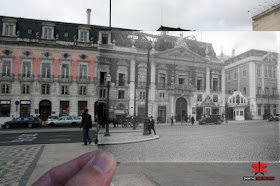
More at How To Be A Retronaut.

More at How To Be A Retronaut.
Awful.

Experiencing the NHL version of a fifth grader's last day of school before Spring Break, the Red Wings started their All Star break a day early and got whacked by Montreal 7-2.
"It just reminds you why you should never get feeling too good about yourself," Babcock said, "because as soon as you do, you get brought down to earth. It was a little humble pie, to say the least. It's unfortunate that people came to see the Detroit Red Wings and never got to see them."
"I thought because we were playing in such a great building in such a great environment that it was going to be a no-brainer," Babcock said. "But we just were awful."
There's more at The Freep, but I'd skip it if I were you.
25 January 2012
Happy Birthday, Burns.
Wyeth, Distant Thunder, 1961

Poet Robert Burns was born on this date in 1759.
To a Mouse
On Turning up in Her Nest with the Plough, November, 1785
Wee, sleeket, cowran, tim’rous beastie,
O, what a panic’s in thy breastie!
Thou need na start awa sae hasty,
Wi’ bickerin brattle!
I wad be laith to rin an’ chase thee
Wi’ murd’ring pattle!
I’m truly sorry Man’s dominion
Has broken Nature’s social union,
An’ justifies that ill opinion,
Which makes thee startle,
At me, thy poor, earth-born companion,
An’ fellow-mortal!
I doubt na, whyles, but thou may thieve;
What then? poor beastie, thou maun live!
A daimen-icker in a thrave
’S a sma’ request:
I’ll get a blessin wi’ the lave,
An’ never miss ’t!
Thy wee-bit housie, too, in ruin!
It’s silly wa’s the win’s are strewin!
An’ naething, now, to big a new ane,
O’ foggage green!
An’ bleak December’s winds ensuin,
Baith snell an’ keen!
Thou saw the fields laid bare an’ waste,
An’ weary Winter comin fast,
An’ cozie here, beneath the blast,
Thou thought to dwell,
Till crash! the cruel coulter past
Out thro’ thy cell.
That wee-bit heap o’ leaves an’ stibble
Has cost thee monie a weary nibble!
Now thou’s turn’d out, for a’ thy trouble,
But house or hald,
To thole the Winter’s sleety dribble,
An’ cranreuch cauld!
But Mousie, thou art no thy-lane,
In proving foresight may be vain:
The best laid schemes o’ Mice an’ Men
Gang aft agley,
An’ lea’e us nought but grief an’ pain,
For promis’d joy!
Still, thou art blest, compar’d wi’ me!
The present only toucheth thee:
But Och! I backward cast my e’e,
On prospects drear!
An’ forward tho’ I canna see,
I guess an’ fear!
- Robert Burns

Poet Robert Burns was born on this date in 1759.
To a Mouse
On Turning up in Her Nest with the Plough, November, 1785
Wee, sleeket, cowran, tim’rous beastie,
O, what a panic’s in thy breastie!
Thou need na start awa sae hasty,
Wi’ bickerin brattle!
I wad be laith to rin an’ chase thee
Wi’ murd’ring pattle!
I’m truly sorry Man’s dominion
Has broken Nature’s social union,
An’ justifies that ill opinion,
Which makes thee startle,
At me, thy poor, earth-born companion,
An’ fellow-mortal!
I doubt na, whyles, but thou may thieve;
What then? poor beastie, thou maun live!
A daimen-icker in a thrave
’S a sma’ request:
I’ll get a blessin wi’ the lave,
An’ never miss ’t!
Thy wee-bit housie, too, in ruin!
It’s silly wa’s the win’s are strewin!
An’ naething, now, to big a new ane,
O’ foggage green!
An’ bleak December’s winds ensuin,
Baith snell an’ keen!
Thou saw the fields laid bare an’ waste,
An’ weary Winter comin fast,
An’ cozie here, beneath the blast,
Thou thought to dwell,
Till crash! the cruel coulter past
Out thro’ thy cell.
That wee-bit heap o’ leaves an’ stibble
Has cost thee monie a weary nibble!
Now thou’s turn’d out, for a’ thy trouble,
But house or hald,
To thole the Winter’s sleety dribble,
An’ cranreuch cauld!
But Mousie, thou art no thy-lane,
In proving foresight may be vain:
The best laid schemes o’ Mice an’ Men
Gang aft agley,
An’ lea’e us nought but grief an’ pain,
For promis’d joy!
Still, thou art blest, compar’d wi’ me!
The present only toucheth thee:
But Och! I backward cast my e’e,
On prospects drear!
An’ forward tho’ I canna see,
I guess an’ fear!
- Robert Burns
Recommence.

Last night, St. Louis crossed the same line Michigan State did four years ago. On one side there is healthy competition. Two teams face off, one walks away the victor, and the other walks away knowing there could be a role reversal in their next matchup. On the other side there is unfettered hatred and loathing. Two teams compete, and one is hellbent on exerting their dominance via thuggery and foolish physicality.
The Blues repeatedly tried to goad the Wings into fighting. They beat the hell out of Brad Stuart. They put Darren Helm in a headlock in front of the net. They punched Jimmy Howard in the face with mere seconds left and the game out of reach. The list goes on.
St. Louis wanted to make a statement last night, and make a statement they did. They were more concerned with physicality than intelligent play. Taking a bad penalty was fine as long as there was a Red Wing in pain on the other end.
If this is what Detroit/St. Louis games are going to turn into then that's fine. I'll take talented, intelligent guys over grinding, undisciplined guys any day. Let the rivalry recommence, little brother. See you on April 4th.
Read the rest at The Octopi Garden.
Joyous.

"(Fielder's agent) Scott Boras has always been able to do very good work with Mike Ilitch, the Tigers owner who just wants to give Detroit a championship," Gammons said. "He just wants people to come to downtown Detroit to be happy about something one way or another."
Gammons took it a step further, calling the signing an act of charity by Ilitch toward the city.
"They don't have to worry on the Tigers, about losing money," Gammons said. "That's a fact of life. You can't do that in Cleveland. You can't do that in Kansas City. You can't do that in most cities. The Tigers have done it because Mike Ilitch wants to give people in Detroit something to be joyous about. In some ways, to me, he's one of the most charitable men in America."
Read the rest at MLive.
Fielder gives the Tigers one of the premier left-handed sluggers in the game, a guy in his 20s who has already had a 50-homer season and a 141-RBI season, led his league in intentional walks last year, and finished third in the National League's MVP voting. He and right-handed Miguel Cabrera will be a nightmare for pitchers in the heart of the Detroit order.
Albom has more at The Freep.
24 January 2012
Spirit.
van Gogh, Barn with Moss-grown Roof, 1881

We lose a great deal when we lose the sense and feeling for the sun. When all has been said, the adventure of the sun is the great natural drama by which we live, and not to have joy in it and awe of it, not to share in it, is to close a dull door on nature's sustaining and poetic spirit.
- Henry Beston

We lose a great deal when we lose the sense and feeling for the sun. When all has been said, the adventure of the sun is the great natural drama by which we live, and not to have joy in it and awe of it, not to share in it, is to close a dull door on nature's sustaining and poetic spirit.
- Henry Beston
23 January 2012
Chaconne.
From Bach's Partita No. 2 in D minor, BWV 1004
Hélèné Grimaud, piano ...
Viktoria Mullova, violin ...
Hélèné Grimaud, piano ...
Viktoria Mullova, violin ...
17.

The Red Wings fought, hit, skated and scored Monday to secure themselves a 17th straight victory at home.
Playing a tight and tense a game with the Blues that matched the two teams closeness in the standings, the Wings used two power play goals to win, 3-1, and take a three-point lead on the Blues in the Central Division. It's the seventh straight victory overall for the Wings.
Pavel Datsyuk, Johan Franzen and Niklas Kronwall produced the goals and Jimmy Howard protected a lead with several quality saves. Brad Stuart pasted Alex Pietrangelo along the boards and punched Chris Stewart in the face, providing the inspiration for a comeback in the second period.
Read the rest at The Freep.
UPDATE: Some highlights ...
Pavel's backhand biscuit into the basket ...
Jimmy with "The Gourmet Shot" ...
Smell ya, St. Louis ...
Aurora.

An active region on the sun has spawned an M8.7 eruption – nearly an X-flare – that blasted a stream of charged particles toward Earth, due to arrive tomorrow (January 24, 2012). Experts at NOAA’s Space Weather Prediction Center are saying it is the strongest radiation storm since 2005. The eruption took place last night (January 22) at 9:59 p.m. according to clocks in the central U.S. (03:59 UTC on January 23). There is no danger to you on Earth’s surface, but satellites in orbit might feel the effects and your cell phone might act twitchier than usual. Plus … aurora alert at lower latitudes than normal!
Read the rest at EarthSky.
David Dondero, "Rothko Chapel"
There was this line by Charlie Parker,
Somewhat worth remembering:
"If you don't live it, it won't come out of your horn,"
Chances are you'll never be reborn
My religion is in nature, art and literacy
My religion is in science, music and poetry
My religion is the mountain, my church is in the seas
My religion is to love you yet my church is entropy
My religion is in your eyes but my church ain't organised
My faith is in the sweetness that you might realise
But my faith it could be fiction, my faith could not be smart
My religion is the weather, yeah, my church is in your heart
Somewhat worth remembering:
"If you don't live it, it won't come out of your horn,"
Chances are you'll never be reborn
My religion is in nature, art and literacy
My religion is in science, music and poetry
My religion is the mountain, my church is in the seas
My religion is to love you yet my church is entropy
My religion is in your eyes but my church ain't organised
My faith is in the sweetness that you might realise
But my faith it could be fiction, my faith could not be smart
My religion is the weather, yeah, my church is in your heart
Fire.

The year of the dragon begins today. It is an auspicious year. Dragons partake of the five elements: water, earth, metal, fire, and wood. Like poet Walt Whitman, they are vast, they contain multitudes. After a Green Dragon or two, you too will be able to breathe fire.
If you are so inclined, follow the directions at The Blue Lantern.
Born in '64, this dragon'll stick with "Milk" ...

16.

The Red Wings extended their franchise-record home winning streak to 16 games, and they needed extra time to get it done.
For the sixth time in their last eight games, the Wings went beyond regulation. Valtteri Filppula scored the only goal in the shoot-out to beat the Columbus Blue Jackets, 3-2, on Saturday night at Joe Louis Arena.
Jimmy Howard made 17 saves, including six in the third period, two more in overtime and didn't allow a goal against four Columbus tries in the shoot-out.
Read the rest at The Freep.
22 January 2012
Realize.
van Gogh, Edge of a Wheat Field with Poppies and a Lark, 1887

The romantics were prompted to seek exotic subjects and to travel to far off places. They failed to realize that, though the transcendental must involve the strange and unfamiliar, not everything strange or unfamiliar is transcendental.
- Mark Rothko

The romantics were prompted to seek exotic subjects and to travel to far off places. They failed to realize that, though the transcendental must involve the strange and unfamiliar, not everything strange or unfamiliar is transcendental.
- Mark Rothko
Happy Birthday, Byron.
Leap.
Wander.

All that is gold does not glitter,

Not all those who wander are lost;

The old that is strong does not wither,
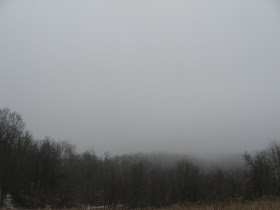
Deep roots are not reached by the frost.
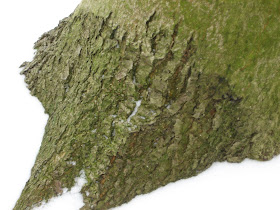
From the ashes a fire shall be woken,

A light from the shadows shall spring;
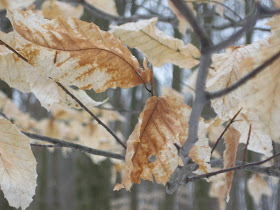
Renewed shall be blade that was broken,

The crownless again shall be king.
- J.R.R. Tolkien


